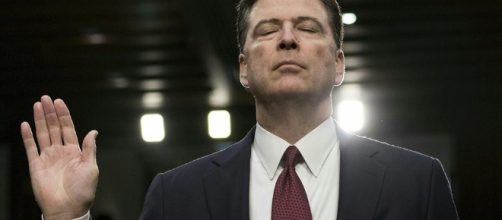Former Fbi Director James Comey confirmed suspicions that President Donald trump fired him for investigating the possible association of Trump's pre-election staff with Russia in a long-anticipated testimony before the US Senate. Though Trump's administration after Comey's release on May 9 gave a different explanation, Trump later confirmed in an interview that the release was linked to an investigation into Russia, reports Reuters.
Interference with the judiciary
Comey referred to Trump's comment when asked why he was fired: "Again, I take account of the President's words.
I know I was fired for the way I conducted an investigation into Russia." Comey had said earlier in the testimony and that he was convinced Trump had asked him to abandon the investigation of former Trump's National Security Advisor Michael Flynn, but he added that he could not say whether it was about hacking the judiciary. Trump critics argue that any attempt to influence the FBI investigation can be interpreted as an interference with the judiciary, which could lead to Trump's revocation by Congress or the Senate. However, since Trump Republicans hold a safe majority in both Houses of the American Parliament and for the time being, they have no intention to launch such a procedure.
Comey admitted he was the one to give confidential information to the media
While Comey testified before the Congress, Trump was speaking to the conservative Christian Faith and Freedom at the far end of the city, where he complained that he is being "under siege". "We will not give up on doing what is right. We know how to fight and we will never give up," Trump stressed. Likewise, AFP reports that Trump's lawyer said Comey could be put under investigation for data leakage.
Attorney Marc Kasowitz addressed the public and emphasized that Comey publicly admitted Trump was not the subject of any investigation, as there is no evidence that voting was influenced because of Russian engagement. "Comey acknowledged that he was one of those who gave confidential information to the media and admitted that he provided confidential information to his friend," Kasowitz emphasized.
Comey said at the hearing that he had written the contents of his conversation with the president and that he showed that note to his friend later, asking him to share them with the journalists. That friend is Professor Daniel Richman of Columbian law studies. Richman confirmed this to Reuters.


